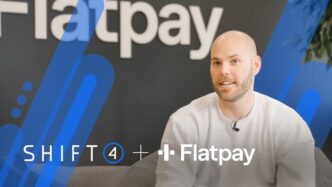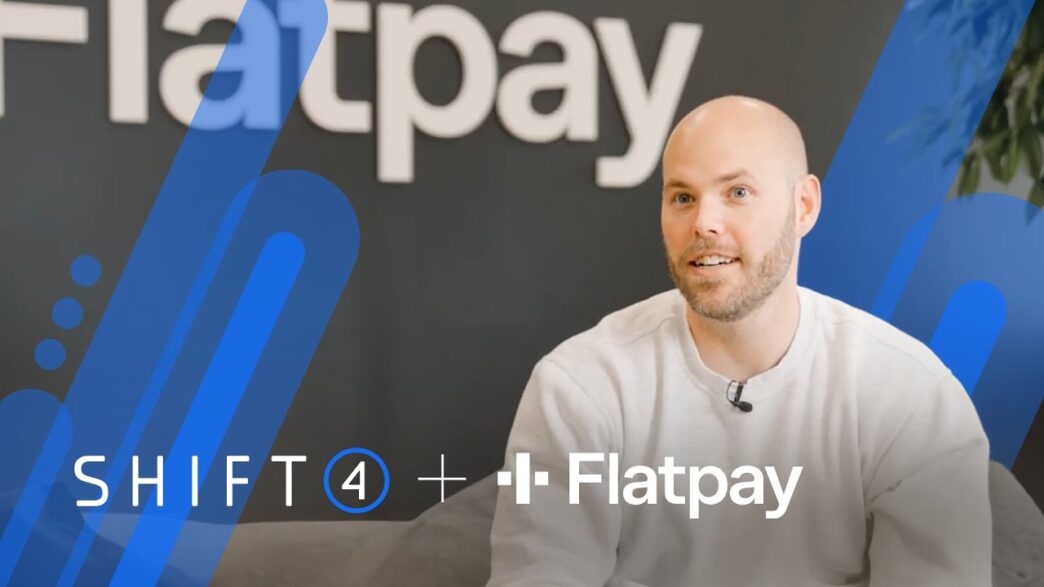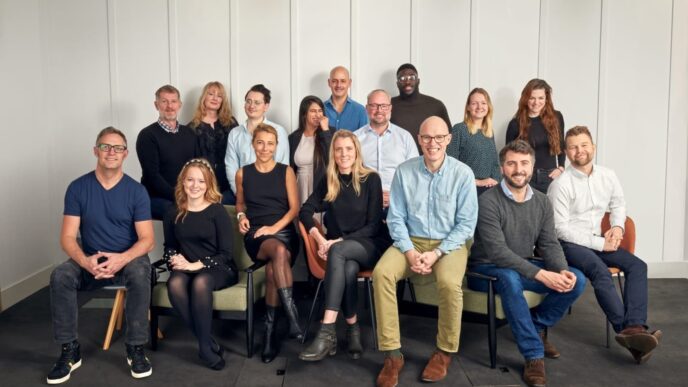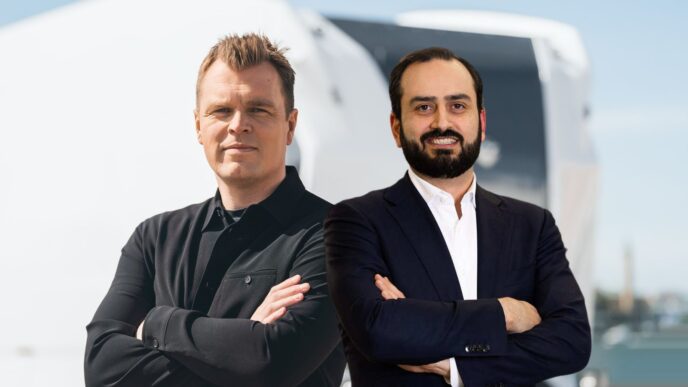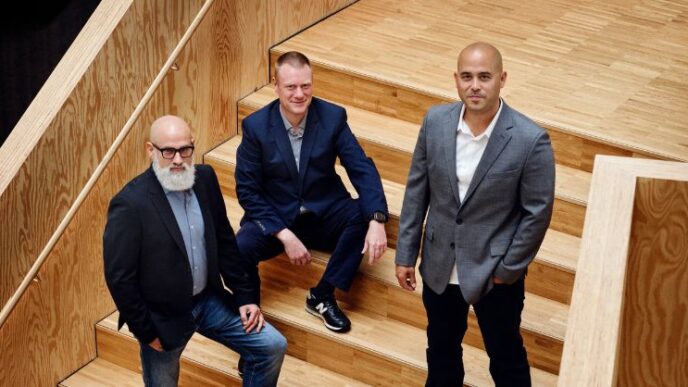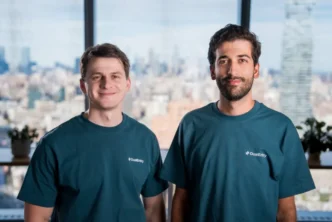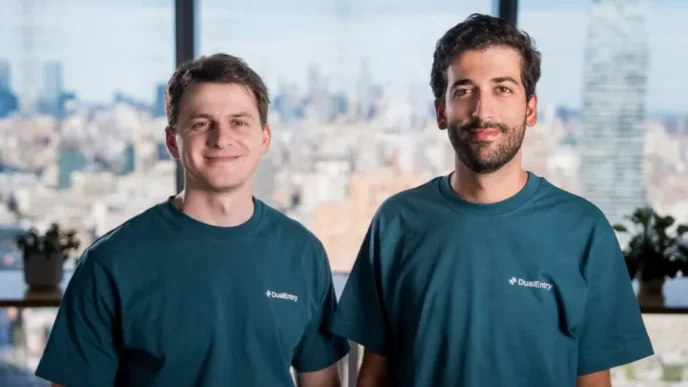Flatpay has officially become Denmark’s fastest unicorn, and the milestone arrived with a momentum you rarely see in Europe’s fintech space. The company secured a massive €145 million funding round, pushing its valuation to €1.5 billion and unlocking a new chapter as it prepares to scale across Europe. For many small and mid-sized businesses, this moment feels long overdue because Flatpay has spent the past three years solving one of the biggest headaches in payments: confusing fees and outdated systems.
For years, thousands of European merchants have tried to navigate complex pricing, hidden charges, and clunky hardware. Every transaction felt like a small gamble. Many paid costs they didn’t fully understand. That environment pushed the founders of Flatpay to try something radically simple. They wanted a system that offered clarity, speed, and fairness to businesses that needed every win they could get. As a result, they built Flatpay with a transparent flat rate that never surprises the merchant, no matter how busy the day gets.
That straightforward idea resonated across Denmark almost instantly. Flatpay launched in 2022 and quickly became the go-to payment solution for SMBs looking to cut through the noise. The company’s clean hardware, intuitive POS tools, and real-time dashboards helped owners stay in control. But even more importantly, the pricing stayed honest. Merchants finally knew exactly what they were paying each time they processed revenue, which slowly rebuilt trust in an industry that often feels too complex.
The new €145 million round, led by Dawn Capital, AVP, and Smash Capital, marks a turning point. Flatpay can now push deeper into Europe with enough capital to grow aggressively but still stay profitable. The company is entering the UK market, strengthening its presence in existing countries, and preparing for a wider rollout that matches the scale of demand they’re already seeing. Reaching unicorn status in a little over three years isn’t just a symbolic moment. It proves that European businesses are tired of old payment systems and ready for something more open, more human, and easier to use.
Sander Janca-Jensen, CEO and Co-founder of Flatpay, called the moment “a special feeling,” and it’s not hard to see why. Building a unicorn usually takes time, but the company moved fast because the problem was urgent. Small businesses needed a partner that treated them fairly. Now, with the valuation milestone secured, Sander says the focus shifts to keeping the growth steady and expanding Flatpay without losing what made it different in the first place.
Flatpay’s founders, including Sander Janca-Jensen, Rasmus Hellmund Carlsen, Peter Lüth, and Rasmus Busk, built the company the old-fashioned way: by talking directly to merchants. They walked into stores, cafés, salons, small shops, and local service businesses. They explained the product face-to-face, listened to the frustrations, and shaped the solution around real needs. Every conversation reinforced the same message. SMBs wanted something reliable and transparent, something designed for them instead of big corporate chains.
That approach shaped Flatpay’s culture. The team doesn’t hide behind email threads or glossy presentations. They meet merchants in person, build trust with eye contact, and explain the exact cost of every transaction. As Sander puts it, transparency isn’t a marketing slogan. It’s the core of the relationship. That’s why so many business owners switched from solutions like SumUp, Stripe, or Adyen. Those platforms offer strong products, but Flatpay made pricing simpler, the experience more personal, and the hardware easier to adopt.
Beyond the human approach, the technology also plays a huge role. Flatpay’s POS system brings everything together: smart software, sleek terminals, instant payouts, and real-time insights that help owners track the health of their business at a glance. Merchants see their revenue in real time. They understand which days perform best, where their biggest costs appear, and how their customers behave. With that kind of visibility, they make better daily decisions, which adds up quickly in industries with tight margins.
That mix of simplicity, power, and trust explains why Flatpay already serves more than 60,000 merchants. The platform is on track to process more than 100 million transactions, and revenue projections show €125 million expected in 2025. Those numbers demonstrate a strong product-market fit in the SMB segment, which is one of the toughest segments to crack in the payments world. Many companies attempt to serve small businesses. Few actually build solutions that fit their real workflows.
Now, Flatpay is entering its next phase. After growing revenue more than 400% in the past year alone, the company plans to triple down on international expansion. The strategy includes scaling its workforce from 1,400 employees today to around 10,000 by 2029. It’s an ambitious target, but Flatpay believes its business model is designed for exactly this moment. With healthy margins and strong customer retention, they can keep reinvesting profits into better products, stronger customer support, and larger local teams across Europe.
Sander emphasized that growth at this pace requires people, and the company is hiring aggressively to support new merchants across every region. Investors like AVP and Smash Capital share that confidence. According to Warda Shaheen, General Partner and Head of European Growth Equity at AVP, Flatpay stands out not just for its technology but also for its culture. She describes the team as deeply connected to the daily realities of small business owners. They bring transparency, empathy, and a strong full-stack solution into an industry that often feels fragmented and impersonal.
Those qualities have built trust quickly, and AVP believes Flatpay can scale beyond Europe in the future. For now, the company is doubling down on its core markets while preparing the foundation for wider global adoption. With more capital, a growing brand, and a strong track record, Flatpay is entering a rare position for a young startup: rapid expansion backed by real profitability.
The injection of €145 million signals that European investors see Flatpay not just as another fintech but as a long-term infrastructure play. Payments may seem simple on the surface, but they shape everything about how a business runs. Flatpay’s mission to make payments fair, transparent, and human gives it an edge that resonates across industries.
Today, the company is a unicorn. Tomorrow, it wants to be the standard for how small businesses get paid across Europe, and eventually the world. At its core, Flatpay is proving that honesty, clarity, and good technology can rewrite an industry one merchant at a time.
